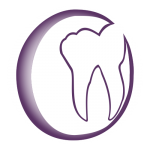
Erasmus+ 2019-1-RO01-KA202-063820 Project
Oral Special Care Academic Resources (OSCAR)
IO3. Proposal to upgrade the current curriculum for residency in Pedodontics – section ”Complex treatment of patients with special needs”
In Romania, Pediatric Dentistry (Pedodontics) has been recognized as a self-standing dental specialty since 2016, with a 3-years residency program (Order of Ministry of Health no. 1109/6.10.2016, published in the Official Gazette no. 786 of October 6, 2016). During the third year of residency, the current postgraduate curriculum comprises 12 hours of courses and 28 hours of clinical stages dedicated to oral care for patients with special needs.
In its current version, this curriculum includes:
Complex treatment in patients with special needs (40 hours)
I. Courses – 12 hours:
II. Clinical stages – 28 hours:
– Performing specific therapeutic maneuvers in patients with disabilities
– Reviews of the literature, reports submission.
——————————————————————-
According to the current recommendations of iADH (International Association of Disability and Oral Health), pediatric dentistry specialists can be regarded as having a ”high level of competence” in providing oral care to patients with special needs because in the residency program they have up to 12 weeks of theoretical and practical training in this field. In addition, pediatric dentists are the only ones who receive training in behavioural management during their residency, which makes them a first-choice profesional category for the therapeutic approach of the disabled patient.
Therefore, an improved and detailed curriculum is needed in order to obtain the best possible training for pedodontists in dental management of patients with special health care needs.
The OSCAR team project performed a thorough study of the undergraduate and postgraduate curricula in the field of dental care for patients with special needs in the project countries (France, Italy, Romania and Turkey). The of this research were published in Romanian Journal of Dental Medicine, no 3-4/ 2021; available online at: https://rjd.ro/volume-xxiv/no-3-4-2021/special-oral-care-in-educational-systems-from-four-european-countries/
A pilot study on the perception and attitudes of pediatric dentistry residents from the project countries with regard to providing oral care for children with special healthcare needs was conducted within the project. The results of this study were presented at the Congress of the Association for Dental Education in Europe (ADEE), 2021 edition (Didilescu A, Vinereanu A, Tănase M, Vacaru RP, Ilinca R, Munteanu A. Romanian paediatric dentistry residents’ self-perceived training needs towards treating patients with special oral care needs. ADEE Strasbourg on-line annual meeting 2021. https://adee.org/tour-poster-showcase-session-1).
The corroboration of the results of these researches led us to the conclusion that the section dedicated to special oral care in the current residency program in Romania could be improved, even in the conditions of maintaining the current number of allocated hours.
Therefore, we present the following
Proposal to improve the current
Special Oral Care curriculum
for the PD Residency Program
A. Theoretical courses – subjects:
B. Practical activities:
—————————————————————————
C. Expected results
As a result of this training, pediatric dentistry residents will be able to:
The aim of training of pediatric dentistry residents in the dental care of patients with special needs is:
pursuing, as a consequence,
————————————————————————————————–
In order to support the teachers from the Pedodontics Department in the university centers that organize Pediatric Dentistry residency, it is important to mention that Erasmus+ 2019-1-RO01-KA202-063820 Oral Special Care Academic Resources (OSCAR) project platform can be used as course support, both for the theoretical part and for the practical part of the training of pediatric dentistry residents in the field of Special Oral Care.
The platform is open-access, available at https://oscarpd.ro/. All materials on the platform are the result of the team work of the OSCAR project team, the clinical cases presented are part of the personal work of the team members, and the use of these materials is allowed free of charge exclusively for non-commercial purposes, with proper mentioning of the source. The content of the platform is protected by copyright law and any reproduction not in accordance with the above specifications is punishable under the applicable law.